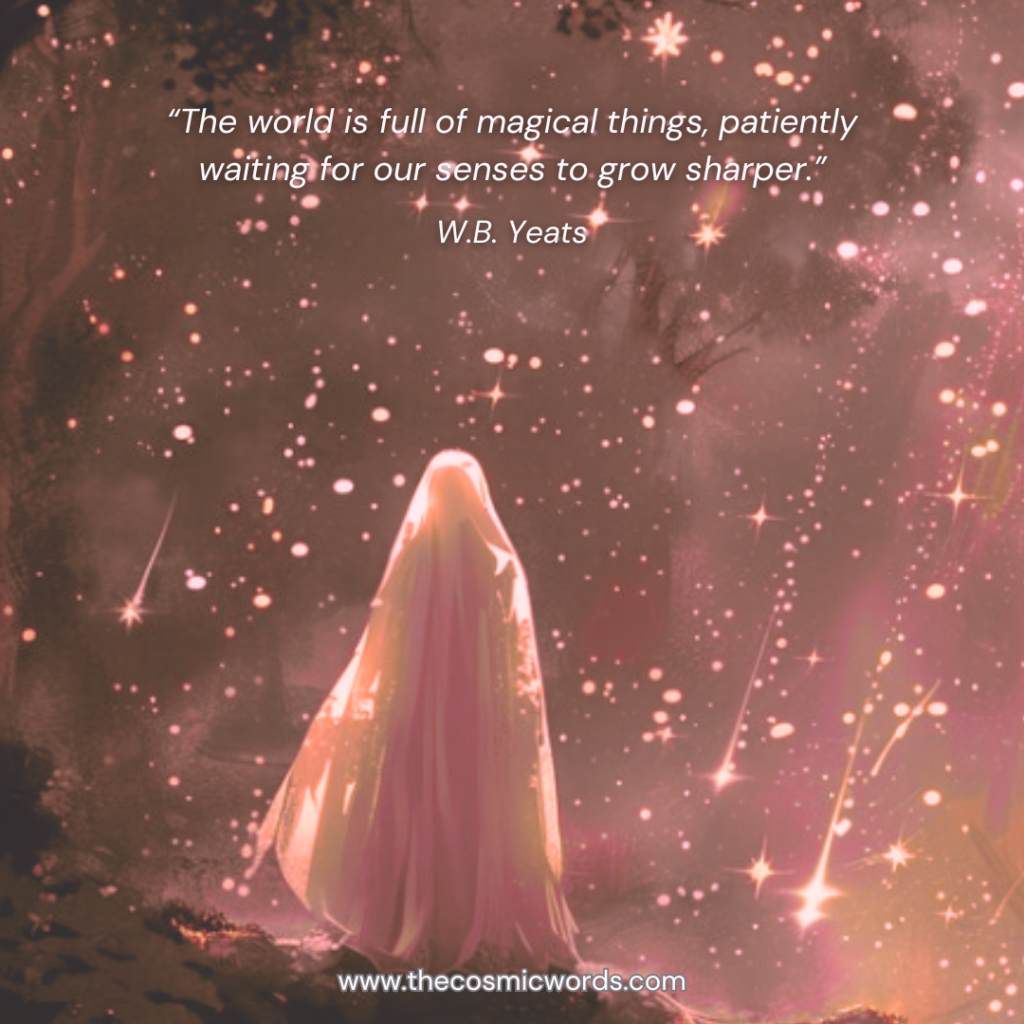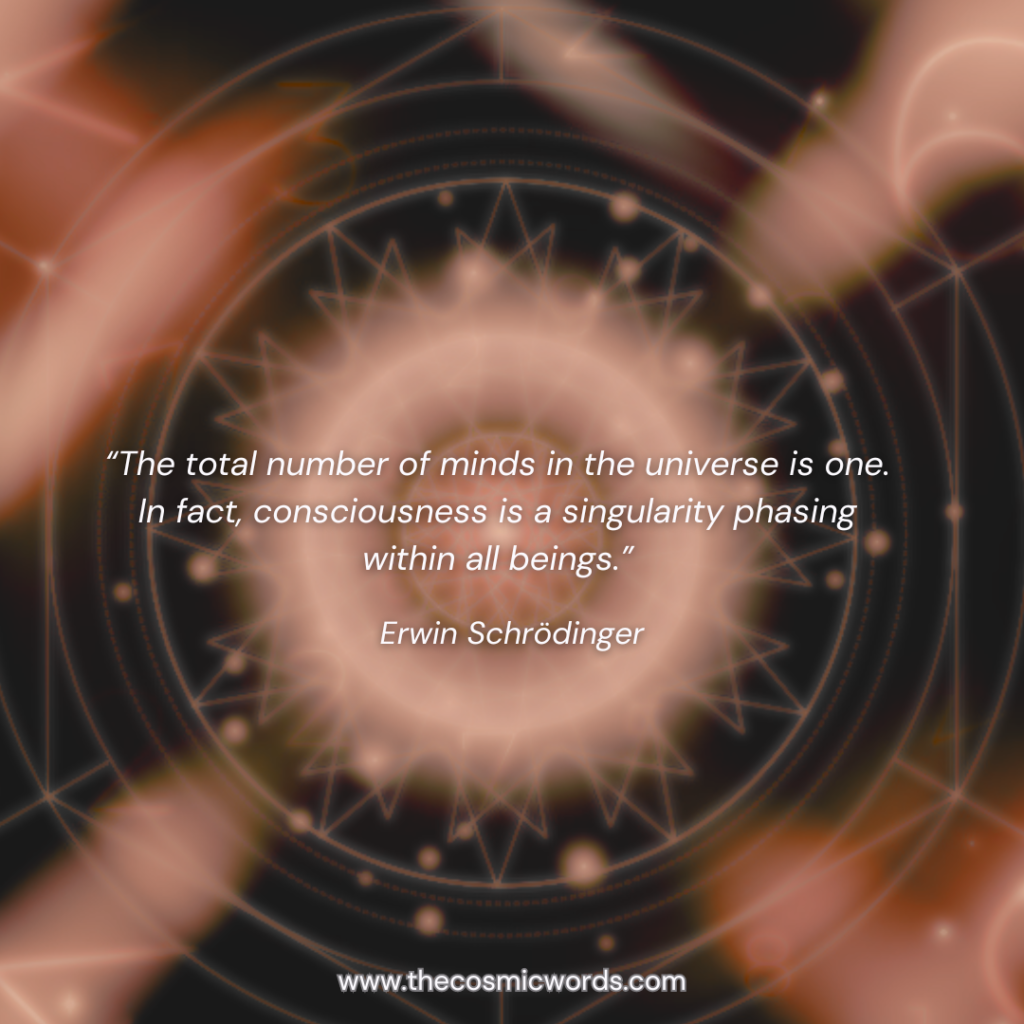There’s a fine line separating Religion and Spirituality.
A modern solution that bridges the gap between the two is the Religion of Spiritualism.
But what is Religion of Spiritualism? What is its history? Is it a good way of living for people who are spiritual but not religious?
We’ll address all your questions in this blog post by breaking down religion, spirituality, and the contemporary amalgam – Religion of Spiritualism.
A 3-D Note: If you’re interested in making your content rank or building a social media presence, contact us here or drop a mail.

Table of Contents
Difference Between Spirituality and Spiritualism
There are different definitions of spirituality.
Bown and Williams (1993) defined it as the “individual search for meaning”.
The word itself comes from the Latin word spiritus meaning soul.
Spirituality thus means establishing a deeper connection with yourself.
Religion, although different is not entirely distinct from spirituality.
Where religion asks questions like “What is wrong and right?“,
Spirituality asks questions like “Where can I find more meaning?“
The bridge between the two is Spiritualism, a philosophy with elements of both.
It has its codified beliefs and stresses personal development and introspection.
Thus, acting as a middle ground.
Although predominantly called the Religion of Spiritualism, spiritualism is mainly a belief system.
This positioning intrigues the new generation who like to identify as “spiritual and not religious.”
Why?
We’ll discuss in the upcoming sections.
New Age Movement in Spiritualism
Spiritualism began in the 19th century when people tried to communicate with departed souls.
The origins of this movement can be traced to 1848 in New York when the Fox sisters tried communicating with spirits.
Following this, Mediums with psychic abilities who can interact with spirits gained prominence.
Many people from scientists to scholars to chemists like William Crooke, a member of the Royal Society, supported mediumship.
However, spiritualism went against certain religious beliefs that deemed communication with spirits as blasphemy.
As a result, many anti-spiritualistic protests started in some parts of the US, UK, Germany, and even France.
But, in Brazil, Mexico, Australia, and Italy, Spiritualism was met on a positive note.
This spread of spirituality and spiritualism was called the New Age Movement.
It enlightened fields of astrology, esotericism, and occult sciences, increasing belief in divinity.

Practices under The Religion of Spiritualism
Owing to its religious aspect, the Religion of Spiritualism has its own set of practices.
The most common of them are,
1. Communication With Spirits. A major belief of spiritualism that caused unrest in orthodox communities was the belief that the living can communicate with the dead.
This was done with the help of psychic individuals called Mediums.
Many times, people faked having these abilities which caused criticism of such practices
However, even today authentic Mediums exist and so does Mediumship.
2. Focus on Personal Development and Growth. Spiritualism emphasizes the importance of the spiritual and inner growth of an individual.
Spiritualists believe that the effects of one’s karma (actions) follow them after death.
They consider life as preparation and death as the exam.
3. Indulging in Healing Practices. Spiritual healing is a huge part of spiritualism and spirituality.
It is done through various practices like energy work, reiki, crystal healing, aromatherapy, and shamanic healing.
4. Believing in the Divine Source. Spiritualists believe the Divine Force/God to be the source and the sink.
Many people who are neither spiritual nor religious or are non religious but spiritual individuals believe in Universal powers.
They don’t base their faith in one supreme God.
Different followers thus, tweak spiritualism based on personal experiences and beliefs.
Some follow it completely, some take the learnings of different religions and spiritualism to create their faith.
Faith in 21st Century
Faith evolves as people question the external world and introspect their conditional beliefs.
Some changes that have been seen in recent times are:
1. Decline in The Number of Religious People. Many people have started to identify themselves as “not religious” or “not religious but spiritual”.
These people question the existing religious beliefs and the traditional methods of doing things.
Thus, laying more emphasis on using intuition and doing what is morally right.
2. Rise of Spirituality. Many people have become spiritual over the years.
An increased interest in personal, experiential forms of spirituality has been evoked.
This is because of multiple reasons, such as fake gurus, dogma, and people in power who don’t interpret the holy teachings correctly.
3. Meeting of Science and Spirituality. For a long time science and spirituality have been the two opposite poles of the Earth.
But branches like Quantum Mysticism – metaphysics that explains spirituality using Quantum Mechanics are now closing the gap.
This is garnering the attention of new sects of people such as scientists and scholars towards the Religion of Spiritualism.
4. Stress on Mindfulness and Mental Health. People are beginning to understand the importance of mental health as much as physical.
Practices like mindfulness and meditation are being included in day-to-day routines.
This isn’t just helping people on a personal level but also raising the energy of the collective consciousness.

Future of Spiritualism
Spiritualism continues to attract followers in the 21st century.
Some factors contributing to its enduring appeal include:
- Flexibility and Individualism. Spiritualism intrigues people who like to be spiritual but not religious. It has a structure but gives you the freedom to reinvent the wheel.
- Integration of Science and Spirituality. With the increased openness to new ideas, it’s being accepted that science and spirituality intersect. This is garnering the attention of individuals who previously didn’t believe in spiritualism.
- Ethical Framework Without Rigid Practices. Religion of Spiritualism is adopted by people as per their choice. This gives the believers room to breathe and live a life abided by the principles they align with.
With increasing changes in the external world and more conflicts in the inner self, more and more people turn to spiritualism.
This is giving it a new face as it builds its presence in a world of AI, automation, and rapid changes.
Certain predictions that have been made are:
1. Adaptation to Modern technology. Spiritualists are exploring the use of technology to communicate with spirits.
Devices like Electronic Voice Phenomena (EVP) and other applications are being designed better for spiritual experiences.
These devices will enable paranormal investigators to communicate effectively with spirits.
This will bridge the gap between different realms and bring new truths to light.
2. Integration with Spirituality. Spiritualism has begun incorporating practices such as meditation, energy healing, and astrology.
This is blurring the line between spirituality and spiritualism.
But, it’s crucial to remember, that spirituality is an inner journey while spiritualism is a belief system.
3. Larger Community. The Internet is helping to foster a greater connection between spiritualists worldwide. This is leading to a more globalized spiritualist community.
These developments suggest that spiritualism will continue to adapt to the changing societal needs and technological advancements.
Conclusion
Religion, spirituality, and spiritualism drive most of our actions.
Religion is usually the default setting, instilled in us by family and community.
Spirituality is a deeper quest, the desire to know one’s soul.
Spiritualism is a unique philosophy with elements of both.
All these philosophies/practices were made to prevent us from going astray.
But what if following a faith itself leads to limited beliefs and perceptions?
Do you have the courage to break out of it?
Do you have the courage to follow a different path?
It’s important to note that the greatest religion is humanity and there’s no better practice than trying to be a better human.
So, question. Ask.
Don’t follow beliefs/customs/trends mindlessly.
Because “if everyone is thinking alike, then someone isn’t thinking.”
– George S. Patton
If you liked this post, consider subscribing using the form below. For any feedback or query, contact us!
FAQs
1. What is the meaning of spiritualism?
Religion of Spiritualism is a philosophy that contains elements of both religion and spirituality. Its core beliefs and practices include connecting with your soul, reincarnation, communication with spirits, and practicing healing remedies such as reiki, crystal healing, and shamanic healing.
2. What is the relation between quantum physics and spirituality?
Quantum Physics is considered a new form of mysticism by many scientists. It stresses the interconnectedness between all living beings with the cosmos. This resonates with the theme of spirituality and thus, many parallels are drawn between them.
3. What is the difference between spirituality and religion?
Spirituality is an individual quest to seek a deeper meaning to know oneself better. Religion is a structured system with its beliefs, principles, and a moral code of conduct.
